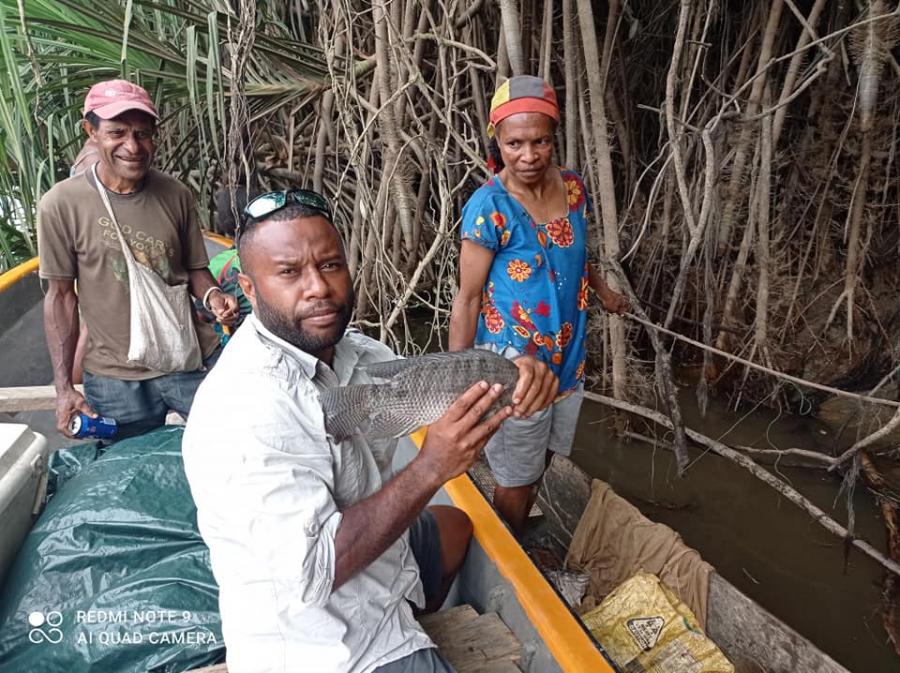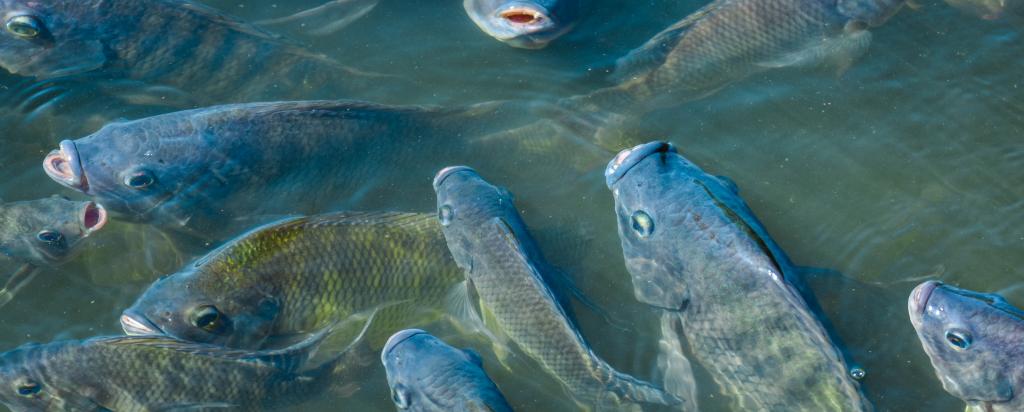

Published on the 27th June 2022 by ANSTO Staff
FutureNow Scholar Joshua Noiney, is researching how nuclear technology could improve nutrition and production in tilapia hatcheries in PNG.
Can you share your project pitch with us?
Fish farming is increasing globally to provide an affordable source of protein and income security for local communities. Tilapia is one of the most farmed fish around the world. Tilapia hatcheries, however, are relatively new in Papua New Guinea (PNG). This research project aims to overcome technological bottlenecks of fish farming practices and yields, by optimising production of tilapia to enhance food and nutritional security in PNG.
What is the problem your industry partner is hoping to solve?
Tilapia is a hardy, fast-growing species which is relatively easy to grow for both small- and large-scale farmers. The bottleneck in PNG is that quality fingerlings are not readily available. This has a follow-on effect, impacting yields and income.
Collaborating with my employer, PNG National Fisheries Authority, ANSTO and UNSW, this research is about improving the management and quality of brood stock to increase production, nutrition, and profits for farmers. The research is led by UNSW and the PNG National Fisheries Authority (NFA) with ANSTO as a key player providing nuclear techniques, analytical tools, and the expertise not available in PNG.
The approach taken in this project will continue to build a nuclear-based technique that has already assisted with improvement of feed for Pacific oysters in NSW hatcheries, and could open up new opportunities for applications in Australia.

What drives you?
I grew up near a river and have always been fascinated by aquatic creatures, most notably fish. My involvement in this project allows me to pursue my passion as well as potentially improve the lives and health of my people.Fish farming creates self-employment opportunities and provides income for families whilst addressing protein deficiency and malnutrition issues which are prevalent in the rural places in my country. Income generated from the sale of farmed fish allows parents to pay for necessities and improves the way of life of local villagers.
I have been provided an opportunity not available to many, so the onus is on me to acquire research skills, knowledge, and information to aid in the development of fish farming practices in PNG. Information gathered will ensure that local farmers have access to up-to-date information that stands to enhance their farming practices.
What are you hoping to achieve at ANSTO?
ANSTO and UNSW already have a successful partnership on aquaculture and seafood provenance. By collaborating with these teams, I’ll have access to cutting edge nuclear technologies at ANSTO. For example, stable isotopes and micro-X-ray fluorescence (µXRF) through Itrax scanning of fish tissue and their feeds will help determine precise nutritional requirements of fish in the hatchery stage. The application of nuclear technology will help to identify feeds that are not important and can be excluded from the production systems, saving money and reducing waste production. Working at ANSTO, I will learn the application of nuclear technology on aquaculture from leading scientists in this field and hope to find solutions for the hatchery industry to minimise production cost.
What’s next on the agenda for your project?
Currently, I’m focused on planning my research. The field trials I will undertake need careful planning because there are many challenges working in remote areas of PNG. I believe that time invested in planning will yield robust data later! I plan to be onsite at the hatcheries later this year to collect data and samples, returning to UNSW and ANSTO in early 2023, to undertake tissue analysis, data review, and to work on my thesis.